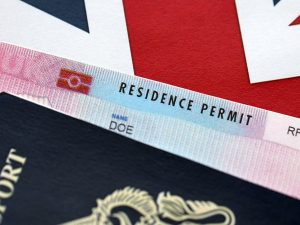
As remote working has continued to flourish post-pandemic, we’re seeing a far more mobile workforce than ever before. Many are choosing to leave the grey UK weather behind for sunnier climes – while keeping a remote job or other source of income. It certainly makes sense from a lifestyle point of view, but how do you sort out the financial side? Fortunately, it’s not as complex as you might think; keep reading to find out the rules and best practices around receiving a UK income abroad.

Where are you a tax resident when you move abroad?
The very first thing to establish is your place of tax residency, because this is what most other rules will depend upon.
The rules are quite simple. You need to spend 183 days a year to be definitively tax-resident in the UK. Likewise, if you’re setting down roots in other countries, the rules usually follow the same principle that spending 183 days in a 365-day period will make you a resident for tax purposes. If, however, you were outside the UK for 183 days but spent the remaining 182 days travelling as a digital nomad for very short periods each in different jurisdictions, you may still be considered as domiciled in the UK as there would be no reasonable alternative.
If you have an entity receiving a UK income abroad but incorporated in a British jurisdiction, then the entity is considered to be ‘resident’ there in the UK regardless of where you yourself live.
Are you subject to foreign tax when receiving a UK income abroad?
If you are not resident for tax purposes in a foreign country (e.g. if you spend only three months a year there in a holiday home), you normally won’t pay tax on your UK income there. Instead, you will pay it in the UK.
If you are resident for tax purposes in a foreign country, then you will usually be liable for individual income tax in that country and not in the UK on most types of income. For example, if you earn a salary as a remote worker in Spain for a company in the UK and you spend at least 183 days in Spain, you will need to pay Spanish income tax.
The exception to this is if you’re in a country that does not have a double-taxation treaty, in which case you will need to make a filing with HMRC. There are very few countries in the world with which the British government has not signed an agreement, and most of these, like Brazil, are in open negotiation.
Top expat destinations, including Spain, France, Portugal, Italy, the USA and the UAE all have double treaties. To reiterate, this means that you will pay your main individual income tax in that country.
However, there are a number of categories of income outside of your main salary where you will need to pay tax in the UK. These include:
- Property rental income if the property is in the UK
- Some UK pensions, such as civil service pensions (check with your provider and HMRC)
These are likewise covered by double-taxation treaties but in the opposite way. For example, if you live in Spain but receive property income from the UK, that will be deducted at source (as we explained here) in the UK and not taxed in Spain.
This may seem confusing, but remember that the overriding principle is that you will not be taxed twice. For salary from employment, you will usually be taxed one time in your country of tax residency. For property, that will usually be taxed one time in the country where the property is located.
What happens if you move countries in the middle of the tax year?
If your departure date from the UK doesn’t neatly coincide with the end of the financial year, not to worry! You can apply for what is known as split-year treatment, which will allow your income to be divided between the time you were living in the UK and were receiving UK income while living abroad.
Simply complete Form P85 either through your Government Gateway account or by post and HMRC will calculate how much you owe. If you’re owed a refund, they will notify you once assessment is complete.

Do you have to pay National Insurance after you move to another country?
The same principle applies here as to income tax: you are generally required to pay only once into a social security system.
If you’re working in the EU and Switzerland, the default is that you will pay into your new country’s social security system. Among those that meet the 183-day rule, the exceptions are if you’re intending to live there for only two years, or you’re a civil servant.
If you’re working in Norway and Iceland and arrived post-Brexit, you will need to apply to HMRC for a certificate of eligibility to understand whether you will pay UK National Insurance. Generally speaking, if you’re intending to live there long-term, you will only pay local social security.
In a number of other key expat destinations, including Canada and the USA, you will only pay local social security. This also applies to a number of British Overseas Territories and Crown Dependencies, including Gibraltar, Jersey, Guernsey and the Isle of Man.
In any other country not listed by the UK government, the default is still that you will pay local social security. However, you will be expected to pay UK National Insurance for your first 52 weeks if you’re considered to be working abroad temporarily, your employer has a place of business in the UK and you’re ordinarily resident in the UK yourself (and were immediately before moving).
That said, if you think it would be beneficial to you to keep paying, you can do so as long as you’ve lived in the UK for three years at some point in the past. If you’re planning to return some day, this might help with some of your rights to benefits and will continue to build up your UK state pension.
Protecting your income when moving it between countries
So now you know where you will pay tax when receiving a UK income abroad, you’re in a good position to work out how best to protect that money from the unpredictability of the currency markets. Click through to discover how you could lock in today’s exchange rate with a forward contract, or use a market order to book an automatic trade as soon as the markets hit your desired exchange rate. Get in touch with our friendly team if you need more information.
Alexander Fordham
Alexander is a writer specialising in foreign exchange and overseas property, with seven years’ experience helping people to purchase abroad and send money safely, including hosting seminars on the topics around the UK. You can find him out hiking, travelling and working from Spain in the sunnier months.



